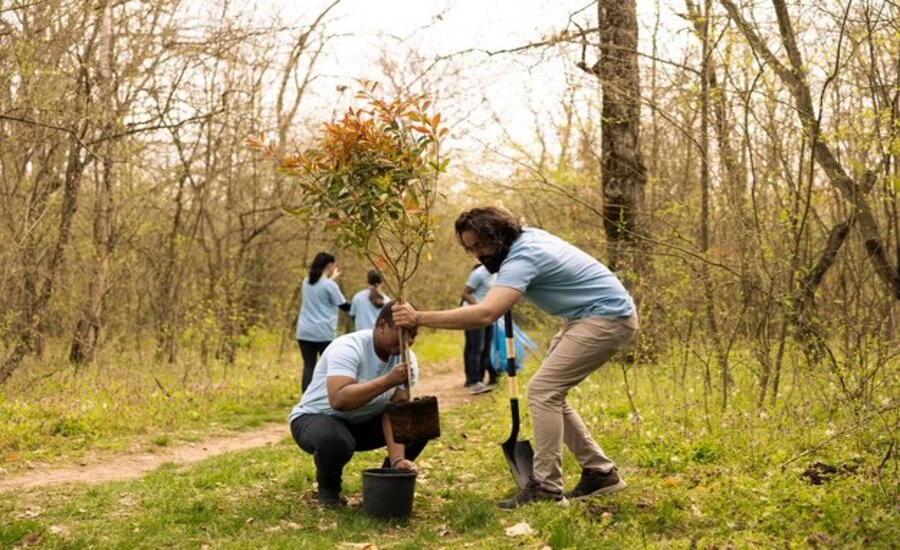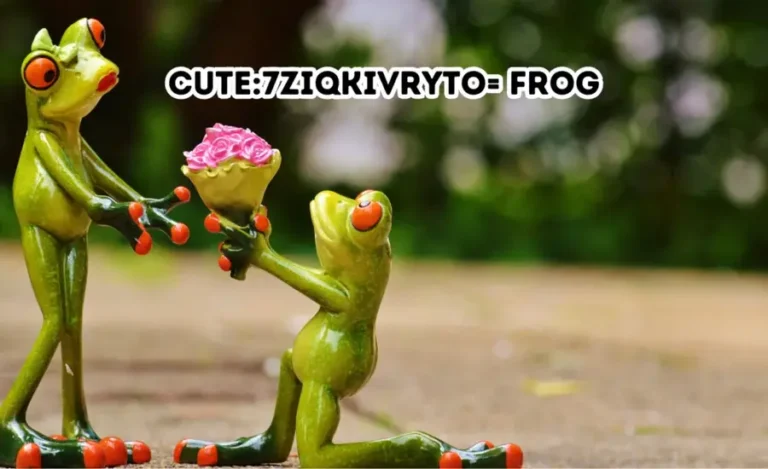Father Grant NWBKA: His Impact, Legacy, and Values
Father Grant NWBKA, a name known within the Northwest Beekeepers Association (NWBKA) community, has left an indelible mark on beekeeping and environmental stewardship. Over the years, his work with the NWBKA has transformed not only the practices within beekeeping but also instilled values of resilience, environmental responsibility, and community among beekeepers and enthusiasts. His journey with the NWBKA reflects a lifetime of dedication, passion, and an unwavering commitment to ethical beekeeping practices. Let’s delve into the profound influence Father Grant has had on the beekeeping world, his enduring legacy, and the values he has instilled in those who had the privilege to work alongside him.
The Beginnings of a Beekeeping Legacy
Father Grant’s journey into the world of beekeeping began decades ago, inspired by a deep fascination with bees and their role in the ecosystem. From a young age, he was captivated by the intricate workings of bee colonies and the crucial role these insects play in pollination and food production. His initial interest soon grew into a profound commitment to promoting sustainable beekeeping practices. He was instrumental in establishing the Northwest Beekeepers Association (NWBKA), an organization dedicated to fostering a thriving community of beekeepers who are as passionate about environmental preservation as they are about their craft.
Under his guidance, the NWBKA evolved from a small collective of local beekeepers to a respected regional organization known for its educational programs, research initiatives, and advocacy efforts. Father Grant’s vision was to create a space where beekeepers could not only share knowledge but also promote practices that align with ecological sustainability. He believed that by educating beekeepers and the public about the importance of bees, they could collectively work towards a healthier planet. His early work with the NWBKA set the foundation for what would become a long-lasting legacy within the beekeeping community.
Transforming Beekeeping Practices Through Education
One of Father Grant’s most significant contributions to the NWBKA was his commitment to education. He recognized that beekeeping was both an art and a science, requiring a blend of knowledge, skill, and intuition. To this end, he organized numerous workshops, seminars, and training sessions aimed at both novice and experienced beekeepers. These educational programs covered a range of topics, from basic hive management to advanced bee health and disease prevention techniques.
Father Grant’s educational approach was unique in that it combined practical instruction with a strong emphasis on ethical practices. He believed that beekeepers had a moral responsibility to protect their bees and, by extension, the environment. His teachings often included discussions on the importance of avoiding chemical pesticides, promoting natural foraging habitats, and understanding the impact of climate change on bee populations. This holistic approach not only equipped beekeepers with practical skills but also instilled in them a sense of stewardship and responsibility.
Father Grant’s influence extended beyond the classroom. He was known for his hands-on approach, often visiting apiaries to provide personalized guidance and support. His willingness to share his expertise and his genuine interest in each beekeeper’s success made him a beloved figure within the NWBKA community. Through his educational efforts, Father Grant transformed beekeeping from a solitary pursuit into a collaborative, community-driven activity centered around shared values and a commitment to ecological sustainability.
Advocacy for Environmental Responsibility and Ethical Beekeeping
Father Grant’s work with the NWBKA was driven by a deep-seated belief in the interconnectedness of all life forms. He understood that bees, as pollinators, play a crucial role in maintaining biodiversity and supporting food production. This understanding fueled his commitment to environmental advocacy, as he sought to raise awareness about the importance of protecting bee populations and their habitats. Father Grant was a vocal advocate for ethical beekeeping practices, often speaking out against practices that prioritized profit over the well-being of bees.
In his advocacy, Father Grant emphasized the importance of preserving natural habitats and reducing the use of harmful pesticides. He worked tirelessly to educate both beekeepers and the public about the dangers of pesticides, which not only harm bees but also disrupt ecosystems. Through the NWBKA, he launched several campaigns aimed at promoting organic farming practices and encouraging local governments to implement policies that protect pollinators. His advocacy efforts were instrumental in shaping public opinion and influencing policy changes that benefited both bees and the environment.
Father Grant also championed the importance of diversity within bee populations. He encouraged beekeepers to maintain a variety of bee species within their apiaries, as this diversity helps to build resilience against diseases and environmental changes. By promoting biodiversity, Father Grant aimed to create a more sustainable and resilient beekeeping community that could withstand the challenges posed by climate change and habitat loss. His advocacy work was not only impactful but also inspiring, as it reminded beekeepers of their role as stewards of the environment and the importance of protecting the creatures upon which we all depend.
Fostering a Strong Community of Beekeepers
One of the hallmarks of Father Grant’s legacy is the strong sense of community he fostered within the NWBKA. He believed that beekeeping should not be a solitary endeavor but rather a collaborative pursuit where individuals could learn from each other and support one another. To this end, he established several community-building initiatives, including regular meetings, social events, and collaborative projects. These gatherings provided a platform for beekeepers to share their experiences, exchange ideas, and build lasting friendships.
Father Grant was known for his warm and welcoming nature, which made everyone feel valued and included. He often took the time to get to know each member personally, listening to their stories and offering words of encouragement. His ability to connect with people on a personal level created a strong sense of camaraderie within the NWBKA, transforming it from a mere organization into a close-knit community. This sense of community was particularly important during challenging times, such as during outbreaks of bee diseases or extreme weather events, as it provided beekeepers with a support system and a sense of solidarity.
Through his community-building efforts, Father Grant created a legacy that extends beyond his lifetime. The bonds he helped to forge within the NWBKA have endured, with members continuing to support each other and work together towards shared goals. His emphasis on community and collaboration has not only strengthened the NWBKA but also created a model for other beekeeping organizations to follow. Today, the NWBKA stands as a testament to Father Grant’s vision of a supportive and resilient beekeeping community.
Legacy of Innovation and Research
Father Grant was not only a practitioner and advocate but also a visionary who understood the importance of innovation in beekeeping. He believed that for beekeeping to thrive in the modern world, it needed to evolve and adapt to changing environmental conditions. To this end, he supported and encouraged research within the NWBKA, often collaborating with scientists and researchers to develop new techniques and technologies aimed at improving bee health and productivity.
One of Father Grant’s key contributions to beekeeping research was his work on hive management and disease prevention. He recognized that traditional beekeeping methods were not always sufficient to address the challenges posed by modern environmental pressures, such as climate change and habitat loss. Through research and experimentation, he developed innovative hive designs and management techniques that promoted better ventilation, reduced the spread of disease, and improved overall hive health. These innovations have since been adopted by beekeepers worldwide, further cementing his legacy as a pioneer in the field.
Father Grant also encouraged research on the impact of climate change on bee populations, recognizing that this issue would have far-reaching implications for beekeeping and agriculture. His foresight and commitment to research have had a lasting impact on the NWBKA, which continues to prioritize innovation and scientific inquiry as part of its mission. By fostering a culture of research and innovation, Father Grant has ensured that the NWBKA remains at the forefront of beekeeping, continually adapting to new challenges and finding solutions that benefit both bees and beekeepers.
Emphasis on Values: Integrity, Stewardship, and Resilience
At the heart of Father Grant’s work with the NWBKA were the values he held dear. He believed that beekeeping was not merely a profession or a hobby but a calling that required a strong sense of integrity, stewardship, and resilience. These values were evident in every aspect of his work, from his commitment to ethical beekeeping practices to his advocacy for environmental preservation.
Father Grant’s emphasis on integrity was reflected in his insistence on transparency and honesty within the NWBKA. He believed that beekeepers should be honest with each other and with the public about the challenges they faced, as this openness would foster trust and credibility. His own integrity was unquestionable, as he consistently acted in the best interests of the beekeeping community and the environment, never compromising his principles for personal gain.
Stewardship was another core value that guided Father Grant’s work. He viewed beekeeping as a form of environmental stewardship, a responsibility to protect and preserve the natural world. This value was evident in his advocacy for sustainable practices and his efforts to educate beekeepers about the importance of protecting bee habitats. Father Grant’s sense of stewardship extended beyond bees to encompass all aspects of the environment, as he recognized that the health of bee populations was closely linked to the health of the planet.
Resilience was perhaps the most important value that Father Grant instilled in the NWBKA community. He understood that beekeeping was not without its challenges and that beekeepers needed to be resilient in the face of adversity. Whether dealing with disease outbreaks, harsh weather, or economic pressures, Father Grant encouraged beekeepers to persevere and adapt. His own resilience served as an inspiration to others, as he faced numerous challenges throughout his career with unwavering determination and optimism.
Conclusion
Father Grant’s impact on the NWBKA and the wider beekeeping community is both profound and enduring. His work has left a lasting legacy that continues to shape the way beekeeping is practiced and perceived. Through his commitment to education, advocacy, community building, innovation, and values, he has transformed the NWBKA into a thriving organization that reflects his vision of ethical, sustainable beekeeping.
Today, the NWBKA stands as a testament to Father Grant’s life’s work, embodying the principles he championed and continuing to inspire new generations of beekeepers. His legacy serves as a reminder of the importance of integrity, stewardship, and resilience in the face of challenges. Father Grant’s influence extends beyond the boundaries of the NWBKA, as his teachings and innovations have had a global impact, inspiring beekeepers around the world to adopt more ethical and sustainable practices.
In conclusion, Father Grant’s journey with the NWBKA is a story of passion, dedication, and an unwavering commitment to making a difference. His work has not only benefited the beekeeping community but has also contributed to the broader goal of environmental preservation. As the NWBKA continues to grow and evolve, it will carry forward the values and principles that Father Grant instilled, ensuring that his legacy endures for generations to come.
FAQs:
Father Grant was a highly influential figure within the Northwest Beekeepers Association (NWBKA), known for his passion for sustainable beekeeping practices and environmental stewardship. He played a pivotal role in shaping NWBKA’s mission and was instrumental in promoting ethical beekeeping, education, and community among beekeepers.
Father Grant contributed significantly through his advocacy for ethical practices, his focus on educational programs, his community-building initiatives, and his commitment to research and innovation in beekeeping. He promoted sustainable hive management techniques and emphasized the importance of environmental responsibility among beekeepers.
Father Grant was a strong advocate for environmental preservation, emphasizing the importance of protecting natural habitats and reducing pesticide use. He also encouraged biodiversity in bee populations, believing that this would help create resilient and sustainable ecosystems that benefit both bees and humans.
Father Grant’s legacy lies in his pioneering contributions to sustainable and ethical beekeeping. His influence has had a lasting impact on the NWBKA and the wider beekeeping community, as his teachings and practices continue to inspire beekeepers to adopt environmentally friendly and responsible approaches.
The core values Father Grant instilled within the NWBKA community include integrity, stewardship, and resilience. He believed in the importance of honesty, environmental responsibility, and the ability to persevere in the face of challenges—values that have continued to shape the NWBKA’s ethos.
Father Grant fostered a sense of community through regular meetings, collaborative projects, and social events, creating a supportive environment for beekeepers to share knowledge and experiences. His welcoming nature and genuine interest in each member’s success helped establish a close-knit, resilient community within the NWBKA.






